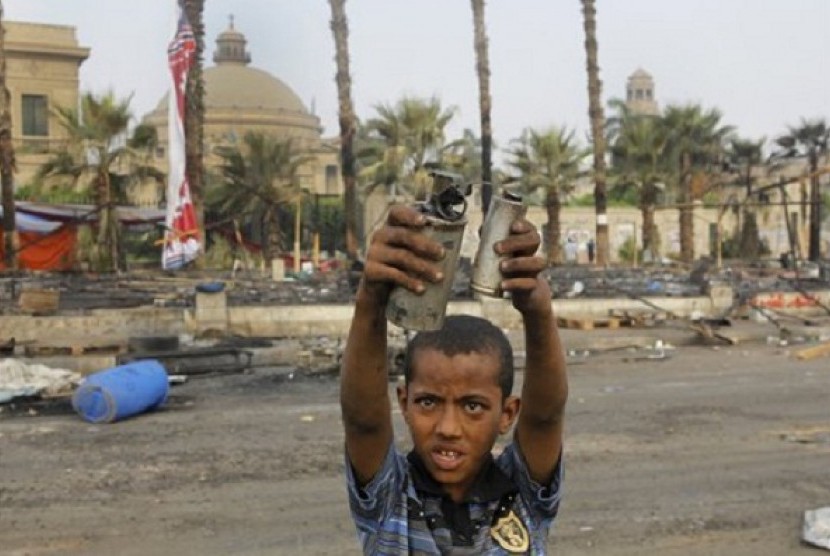REPUBLIKA.CO.ID, BRUSSELS - The European Union said Sunday it will "urgently review" its relations with Egypt, warning the authorities there that the people's calls for democracy and fundamental rights "cannot be disregarded, much less be washed away in blood."
In a rare joint foreign policy statement, the presidents of the European Commission and the European Council said it's the responsibility of the Egyptian army and the interim government to end the violence and to embark on a political dialogue to swiftly restore democracy.
Nearly 900 people have died there over the week in clashes between security forces and supporters of the deposed President Mohammed Mursi, officials said.
"The violence and the killings of these last days cannot be justified nor condoned," said the European Commission President Jose Manuel Barroso and Council chief Herman Van Rompuy. "The calls for democracy and fundamental freedoms from the Egyptian population cannot be disregarded, much less washed away in blood," they added.
Top EU diplomats are gathering Monday morning in Brussels to discuss possible EU actions in response to the crisis in Egypt. The diplomats will lay the groundwork for an expected emergency meeting of the bloc's foreign ministers on Egypt later this week.
The 28-nation bloc is a major source of aid, loans, business and tourists for Egypt. The EU and its member states last year pledged a combined 5 billion euros (6.7 billion USD) in loans and aid for Egypt, contingent on the progress toward democracy.
Besides the economic leverage, German Chancellor Angela Merkel on Sunday floated the idea to halt previously approved arms shipments to Egypt as part of a coordinated EU response.
"In any case, arms exports can absolutely be subject to measures by which one makes it clear: We are very skeptical regarding what is happening in Egypt at the moment," she told public broadcaster ZDF. "We will do everything to stop the violence."
Sun-seeking tourists from Germany and other EU countries flocking to resorts on the Red Sea have kept Egypt's ailing economy from suffocating since the 2011 Arab Spring protests that led to the ouster of autocrat Hosni Mubarak.


